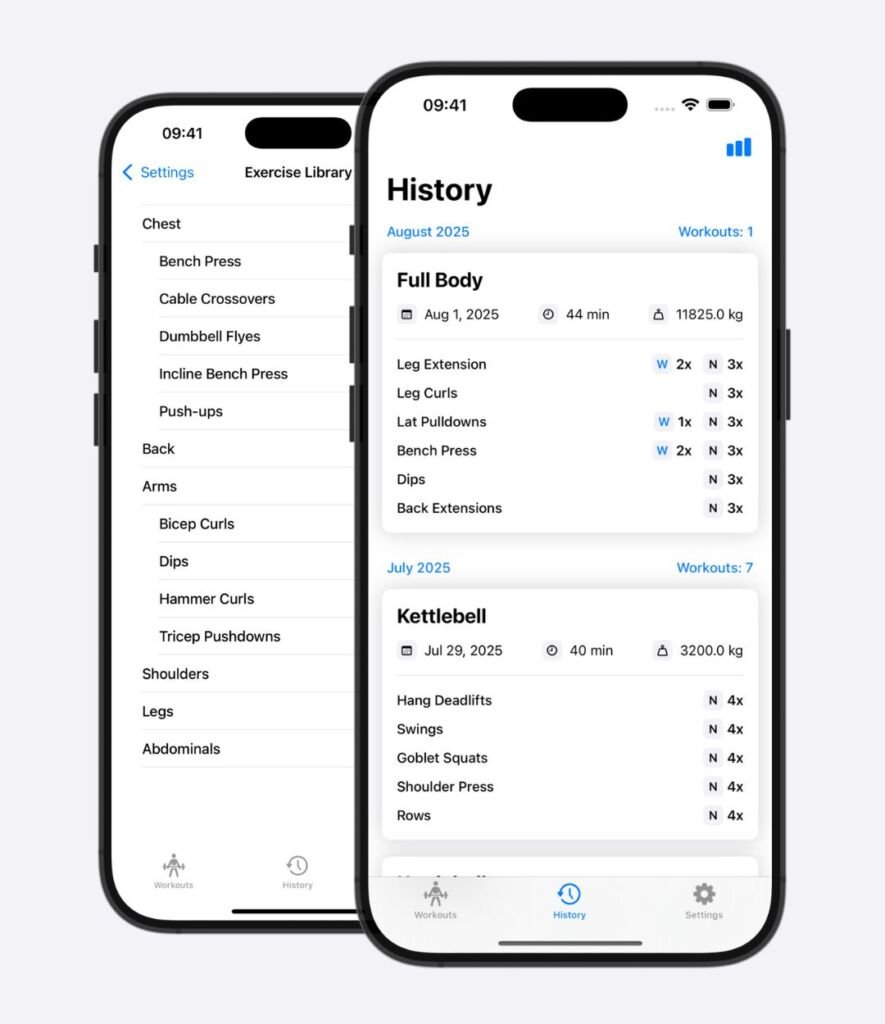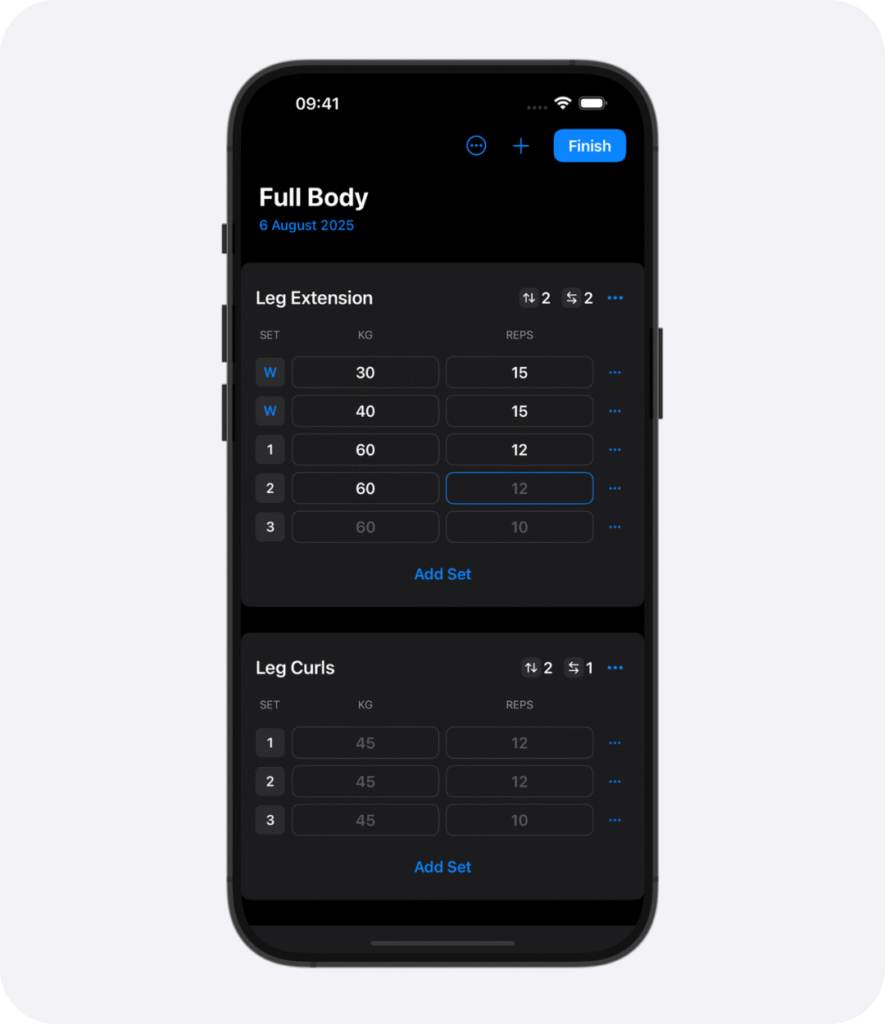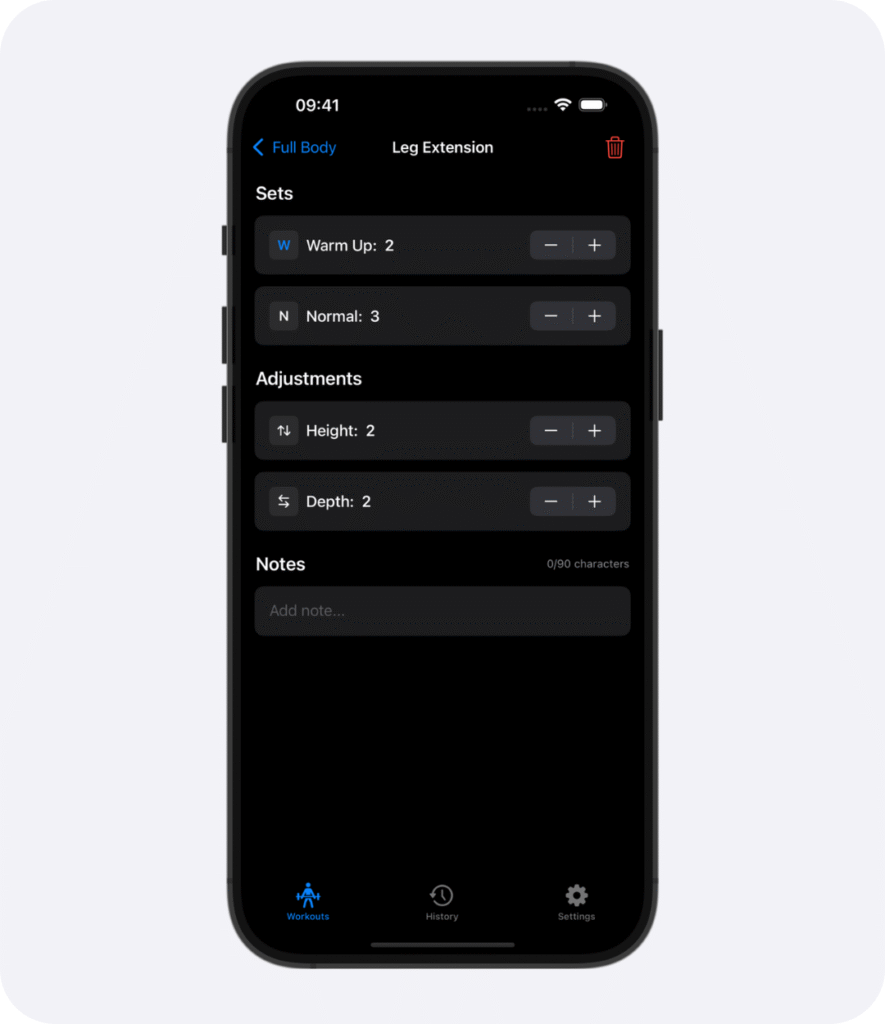
Introduction
Every athlete, from beginner to pro, benefits from keeping a training diary. Writing down your workouts makes progress visible, builds consistency, and prevents guesswork. But instead of scribbling in a notebook, you can now keep your diary in your pocket with a dedicated app.
What Is a Training Diary?
A training diary is a structured record of your workouts—every set, rep, weight, and note collected in one place.
- For beginners, it shows you exactly where to start and how to improve.
-
For experienced lifters, it provides data to refine technique and break plateaus.
-
For anyone busy, it makes training easier to track, review, and repeat.


Why Keep a Training Diary?
Makes Progress Tangible
It’s easy to forget small improvements. A diary shows you: Last month: 5 km run in 28 minutes. This month: 26 minutes.
Adds Structure
Instead of random workouts, you follow a plan, see your history, and know what comes next.
Enables Progressive Overload
Tracking ensures that you gradually increase weights, reps, or distance to keep improving.
Builds Accountability
When your progress is logged, you’re less likely to skip sessions—your training diary keeps you honest.
Problems Without a Training Diary
- Forgetting what you did in previous workouts.
-
Repeating the same weights without progression.
-
Plateauing without realizing it.
-
Struggling to stay motivated without visible results.


Why Weights Is the Perfect Training Diary App
Key Features
-
Quick entry for sets, reps, and weights.
-
Workout history that’s easy to review anytime.
-
Progress charts that turn numbers into motivation.
-
Apple Health sync for an integrated fitness view.
-
Offline support so your diary works wherever you train.
Benefits That Matter
- Keep a detailed record without paper or spreadsheets.
-
See progress at a glance.
-
Apply progressive overload automatically.
-
Log in seconds—focus on training, not typing.
Actionable Tips:
How to Use a Training Diary Effectively
- Write down every workout, no matter how small. Consistency builds the story of your progress.
-
Set goals (e.g., increase squat by 10 kg in 12 weeks) and check against your diary weekly.
-
Review past workouts before training to know what to beat.
-
Add context like sleep, recovery, or notes on form.
-
Celebrate small wins—your diary shows how far you’ve come.

